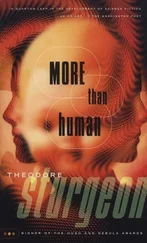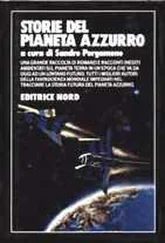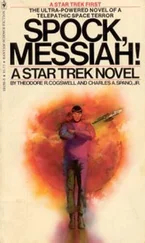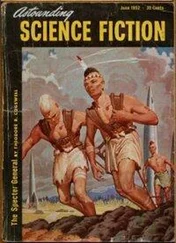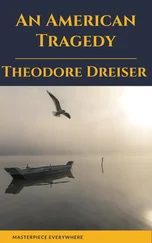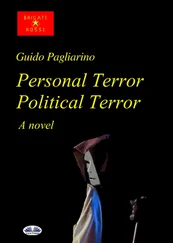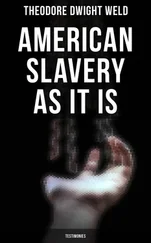“Try and make them like me?” Her eyes bulged. “They’ll never like me. They’re hostile and aggressive. In fact, the entire atmosphere here is unbearable.” Then looking at him coldly, “And you! You’re talking to me pretending to be my friend, but you can’t fool me, not for one minute. I know you’re the one responsible for creating adverse sentiments here. It’s because of you the children are the way they are.”
She had barely uttered these words, when the door was thrown open and Ivashkevich came into the office. Having heard Haya’s accusations from the hallway, he immediately rose to Kulik’s defense. “You’re being too hard on our headmaster, Haya Sruleyevna. After all, the Soviet schools are only just beginning to be developed here, and to ensure a smooth transition, we all have to work together. The headmaster only just recently landed the post here himself. You can’t hold him accountable for your unfortunate incident.”
“I can’t hold him accountable?” Haya shot back. “You mean to say I can be murdered by one of my pupils tomorrow and the little monster will go free because our good headmaster here cannot yet be held accountable? What kind of place is this?” She pulled a handkerchief from her pocket and blew her nose. “I don’t have any peace anywhere, I’m terrorized wherever I go. In the classroom I’m harassed nonstop; out in the street I get sticks and snowballs hurled at me from all sides. And all because I’m Haya Fifkina Sruleyevna, a Jew. Under Soviet law we Jews now have the same rights as all citizens of the Soviet Union. Everyone is equal. The activities going on in this village are subversive and illegal and it’s my obligation to bring them to the attention of the authorities.” She stormed out into the corridor, shouting, “You haven’t heard the last of this! I’m not through with you yet, not by a long shot!”
Silence fell over the room. Ivashkevich stood against the wall awkwardly, not knowing what to say or do. Kulik sat at his desk, trying to appear calm. After several minutes, the two men glanced at each other. Finally, clearing his throat, Kulik said, as if nothing unusual had just happened, “Comrade Ivashkevich, please have a seat. How are things going with the third graders?”
“I have nothing to complain about, really. But on the other hand, I don’t have anything to boast about, either. The children don’t understand me and I only understand about every tenth word of theirs. In all honesty, when I was assigned to this school I really thought I’d be amongst fellow Belorussians, but that’s not the case at all.
“I think our new regime has made a serious mistake in not connecting this region to Ukraine. I don’t think our new leaders are quite the humanitarians they claim to be.”
Kulik was completely rattled by Ivashkevich’s remarks. He looked suspiciously at him; something was not quite right. The atmosphere became strained. Kulik hesitated, asking himself question after question. Why did Ivashkevich so brazenly and unabashedly take it upon himself to openly challenge the new regime? Certainly it was not because he was reckless, or incapable of seeing how dangerous such talk was. Was he testing him? Trying to provoke him in some way? Did he expect his defenses to be down, especially after the scene with Haya Fifkina? Something was wrong. He began to suspect that Ivashkevich had a secret plan of some kind. And then his worst fear turned to reality: Ivashkevich was an informer! This fellow teacher with whom he had exchanged friendly words, even the occasional anecdote, this man who showed only his good nature, was in fact a trickster, a government agent sent to spy on him. Kulik had a horrible feeling of helplessness; his heart pounded. He knew he had to do or say something to throw Ivashkevich off track. He said firmly and with conviction, “The Soviet regime has made no mistake, Comrade Ivashkevich, I assure you. Our good liberators always have in mind what’s best for the people of our great nation.”
“You really think so?” Ivashkevich smiled uneasily. He could not hide the fact that he was very much discouraged by Kulik’s response.
“Absolutely.” Kulik reached across his desk. “Take a look at this microscope.” He carefully picked up the instrument and handed it to Ivashkevich. “It’s quite magnificent. Our school has never seen anything like it before. The Soviets, by providing something of this caliber, show that they truly care about quality education for the masses, from the factory worker to the peasant.”
As Kulik spoke, he felt Ivashkevich’s eyes on him, weighing his every word, as if looking for a break in his voice or hesitation of some kind. Ivashkevich was waiting for him to make a slip or to do or say something incriminating so he could take it to the authorities. Kulik watched Ivashkevich watching him, and he wondered if Ivashkevich doubted him as much as he doubted Ivashkevich. When finally the expression on Ivashkevich’s face seemed to suggest he was giving up on his little game, Kulik, at least for a moment, was able to let down his guard.
Ivashkevich had lost the first round, and as if realizing this, in an attempt to mask his intentions, began to mouth propaganda. “You are correct, Comrade Kulik. We must forever be grateful to Joseph Vissarionovich Stalin for our liberation and for the good fortune he has bestowed upon us. Just to see an instrument like this microscope or the fish tank in the sixth grade is enough to convince anyone that the new regime is truly generous and wonderful.”
After finishing this speech, Ivashkevich adjusted his shirt collar, abruptly excused himself and hurried out the door. As he disappeared down the corridor, Kulik couldn’t help but wonder, who had truly come out on top, he or Ivashkevich?
The bell rang. Recess was over and classes were resuming. Kulik, still at his desk, took a deep breath. The dark clouds hanging over him were forever descending, and before long they would consume him completely. Although he had gotten off easy today, he knew that with each day there would be new and more formidable hurdles to leap. He was upset and very tired. The future looked grim, if there even was a future, and the past had been blown into little pieces. Tomorrow would no longer be a day like any other, but the beginning of a new and more terrible challenge.
Kulik’s thoughts were in a tangle. He tried to read through some papers. But no matter how hard he tried to concentrate on his work, he couldn’t get Ivashkevich out of his mind. The truth of the matter was, Ivashkevich was a government agent, an informer, with one purpose — to get him, Kulik, on even the flimsiest of suspicions. Yes, he understood it all now; he was being pursued, and by someone in the school, and now more than ever he had to watch his every step.
To further complicate things, the unfortunate incident with Haya Fifkina grew bigger and bigger. News of trouble at the school spread like wildfire and it was not long before every house rang with the scandal. Small groups of women gathered to gossip in their yards, men argued in the streets, and officials in the Clubhouse called emergency meetings. Everyone was shocked to learn that Ivan Kulik, the new village headmaster, was an anti-Semite. And it didn’t stop there: he was not only stirring up the children, but also promoting anti-Semitic sentiments everywhere in the region. When these very serious allegations reached his ears, Cornelius took it upon himself to confront Kulik.
“What’s been going on here?” he demanded. “Word has it you’re pumping the children up with anti-Semitism. It’s a good thing Haya Fifkina caught wind of your actions before they got out of hand. She’s already reported you to the Pinsk authorities.”
“What are you talking about?” Kulik asked.
Читать дальше

